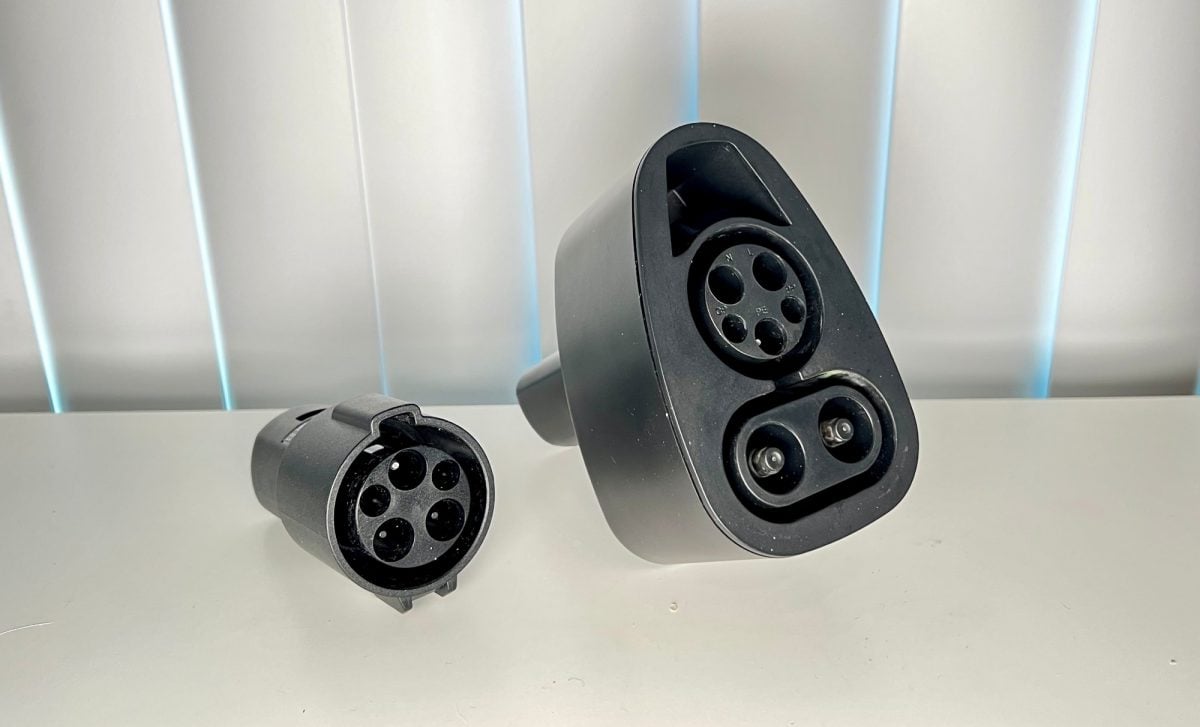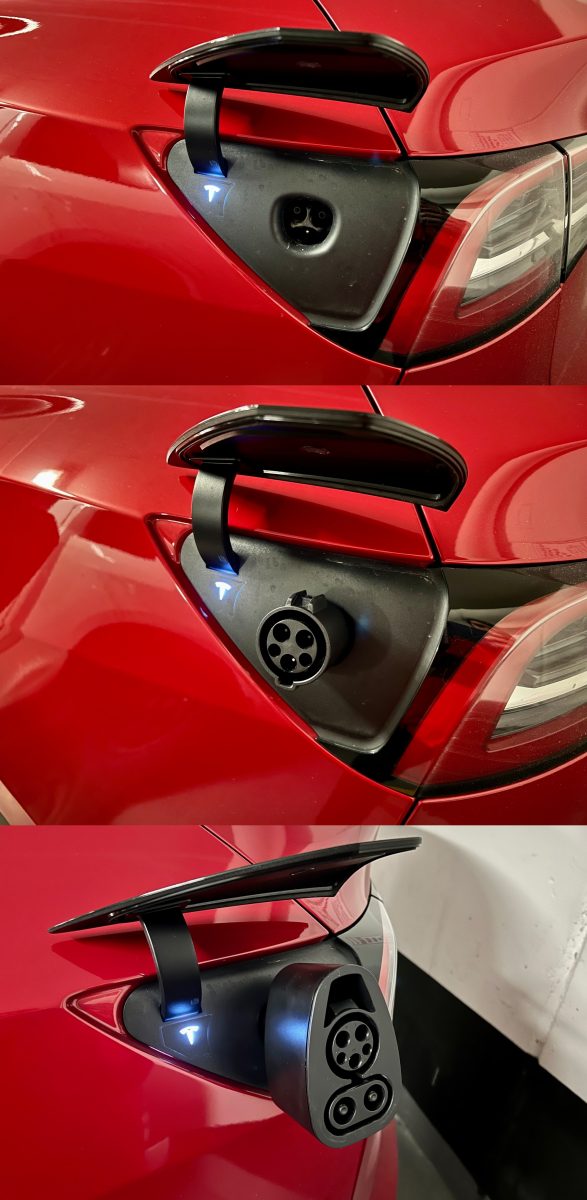This article is intended for users in North American markets where Tesla cars include a proprietary charging connector. Teslas use CCS connectors natively in other markets, so adapters are not needed.
In North American markets Tesla uses a proprietary plug, it was recently renamed as the North American Charging Standard (NACS). But EV models from other brands are all-in on the CCS/J1772 bandwagon, a more globally accepted set of standards. One day a winning plug type will emerge in North America, but right now the race is difficult to predict. Tesla has more cars and fast charging stations on the road than all other brands combined, but the other brands are growing market share quickly.
August 2023 Edit: Ford, GM, Rivian, and others have announced their intention to sell their vehicles with native NACS (Tesla) ports starting in 2025. This development basically guarantees that NACS will become the de facto standard in North America in the future. But for now, we are dealing with a messy adapter situation.
When do you need a Charging Adapter for Tesla Cars?
Most Tesla owners rarely ever need to use a charging adapter. If they have a home charging station such as the Tesla Wall Connector (or Mobile Connector), and they can fast charge at Supercharger stations, an adapter will not be required. Tesla cars outnumber other EVs 2 to 1, so the infrastructure is currently optimized for Tesla drivers. However, as more non-Tesla electric cars emerge, there will be more charging stations without Tesla-specific plugs and adapters will become increasingly useful.
If a Tesla driver wants to charge at a non-Tesla branded EV charging station, an adapter is required.
J1772 to Tesla Charging Adapters
The J1772 plug is essentially the smaller top half of the larger CCS plug. A small J1772-to-Tesla adapter will be included with every recently sold Tesla car (check your truck storage compartments). J1772 adapters are used for connecting Tesla cars to non-Tesla Level 1 and Level 2 charging stations. This includes popular home charging stations, and public Level 2 charging stations often located in parking lots. The adapter can handle up to 80 amps and 240 volts and can help recharge a Tesla from J1772 EV chargers as fast as Tesla-specific stations.
CCS to Tesla Charging Adapters
CCS to Tesla adapters are relatively new, having been widely available since late-2022. These adapters allow Tesla cars to connect to non-Tesla fast DC charging stations. Think “Supercharger” stations from other brands. ChargePoint, EVgo, and Electrify America are the largest charging networks outside of Tesla’s Superchargers. [stats] Having a CCS to Tesla adapter could make road trips more convenient because it opens up more options for charging stops. We maintain a list of CCS adapters here. CCS-to-Tesla adapters allow Tesla drivers to charge at 50-250 kW at CCS-equipped fast charging stations.
Think of J1772 as the top half of the larger CCS (Combined Charging System) connector. J1772 is responsible for Level 1 (120 volt) and Level 2 (240 volt) alternating current charging. While the larger CCS connector with those additional Level 3 pins at the bottom is required for 400 and 800 volt ultra-fast charging.


